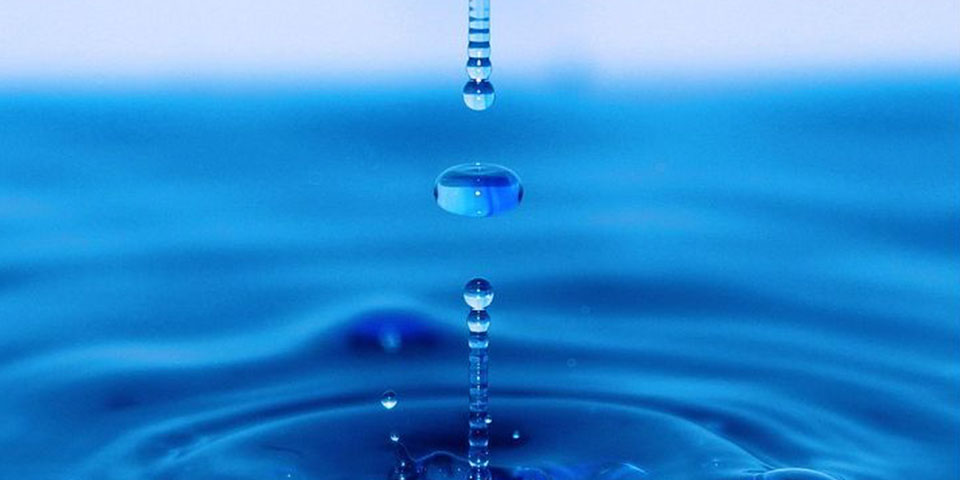 Industry News
Industry News

Water Crisis - a topic of utmost concern that has been discussed numerous times by governments, industrialists, and people in general. From a survival standpoint, there is an ongoing ask to minimise waste, follow a sustainable path to manage daily operations and form stringent measures to save water. Nevertheless, the question is what are we really doing to take proactive action and monitor if steps are being implemented in the right direction? The World Water Council asserts that there is a shortage of water globally, but it is not because there isn't enough water to meet human requirements. Instead, there is a crisis in water management that is causing harm to the environment and billions of people. Therefore, it is time that we, as responsible industrialists, work towards water conservation through a well-established approach.
Manufacturing is the core for all businesses – automobile, aeronautical, civil, chemical, agricultural, machine tool etc. and also software processes, if we consider coding / simulation as an essential part of manufacturing. When manufacturing succeeds, all other areas in a company grows. This enables "purposeful growth with winning portfolio" – organisations focus on creating value for all stakeholders with new winning framework of accelerating innovations.
The efforts made by the industry over the last few years by setting up targets in minimising water consumption as one of their sustainability initiatives is applaud able and indeed a step forward in the right direction. OEMs are expected to introduce alternative solution which will reduce our dependency on water. Hydrogen as an alternative fuel can prove to be of great use because of the energy it releases, which further produces water as a by-product.
But, the question remains that how companies continue to increase efficiency whilst also achieving their sustainability goals through water conservation?
The automotive industry is working on a global scale and striving to achieve excellence in all key aspects, whether it is ESG, manufacturing or digital transformation. As far as water conservation goes, the right approach is Reduce, Reuse and Recycling of groundwater to minimise wastage and harm to our climate. Additionally, leveraging technology for real time tracking and data driven insights on water consumption in the plants will significantly help reduce the unnecessary flow and improve operational efficiencies in the plants.
Major automakers and leading auxiliary companies in India have shifted to waterless solutions, recycled treated water, and reduced water use for diverse uses.
At TVS Motor Company, there is a dedicated dashboard for accurate accounting of withdrawal and consumption of water. This IoT system helps them to identify the abnormalities in water consumption and take corrective actions. Towards the conservation of fresh water, the company has taken several initiatives which includes dishwasher, washing machines for the canteen and adaptor for taps across the factories.
Advanced treatment like Membrane Bioreactor (MBR) is used in wastewater treatment which significantly improves the life of RO (Reverse Osmosis) membranes. The factory houses a fully automated reused water vehicle wash system which is also replicated across dealerships. These initiatives have reduced water requirement by 60% in the last ten years at TVS' Hosur Plant.
We also focus on all areas of 7 M conditions for sustainable results. 7 M conditions are Men – skills, Method -process of manufacture, Material – Flow of material, lean thinking at Suppliers, OEMs, Material handling, Money – optimising manufacturing cost and total cost, Measurement – consistency of measurement and Quality, and Mother nature – Environment and Energy.
In Conclusion
 S Devarajan
S DevarajanSenior Vice President, Advanced Manufacturing, TVS Motor Company
Since the automobile sector is a major contributor to India's GDP, providing solutions that are based on sustainability is essential. The issue at hand is to raise awareness towards sustainable and green principles in order to protect our people and the planet. By supporting the industry to achieve their ESG targets, the government is also stepping forward and paving the road.
As responsible automakers, it is our duty to use recycled groundwater and cut back on process water consumption to lessen this criticality. Incorporating the use of innovative technologies across the assembly line will be efficient in achieving the desired outcome. It is imperative that OEMs look for practical and sustainable solutions as soon as a new product idea is conceived, to ensure minimised resource utilisation. In fact, consumers are the primary force that may propel businesses towards this transition and encourage them to adopt an efficient and sustainable approach to daily operations.
As a starting point, optimising the usage of water and modifying behaviour towards its utilisation will introduce visible changes to drive efficiency in processes where water is a pre-requisite. The current situation is only the tip of the iceberg; we should act pro-actively now rather than waiting when the crisis is tougher to contain to ensure a cleaner, greener, sustainable and a livable future ahead.




